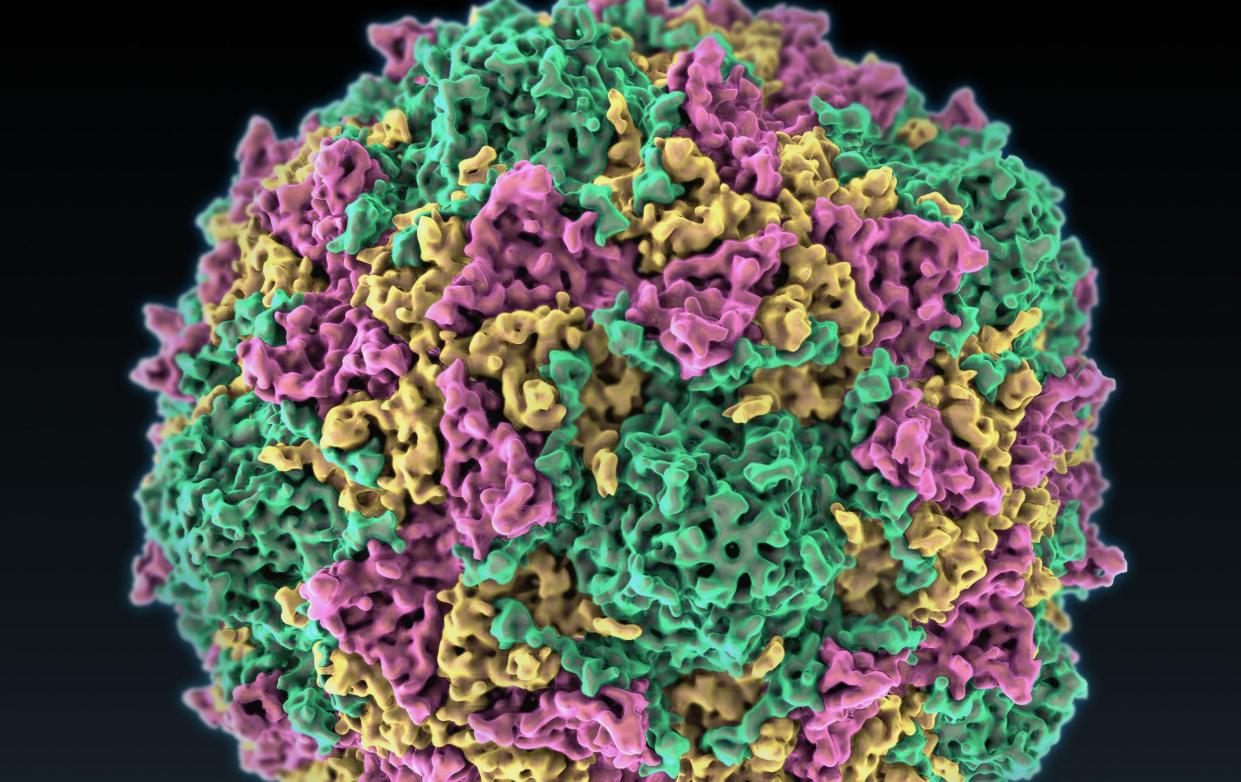Polio confusion as parents cannot tell if teenagers have been vaccinated

People are struggling to confirm if they or their children are vaccinated against polio, it emerged on Thursday.
Health officials urged the public on Wednesday to ensure their polio vaccines were up to date after an outbreak of the virus was detected in UK sewage samples.
But some parents said they were pushed from one authority to another trying to get answers.
It also emerged that permission from a GP must be granted to allow patients to access their own, or their children’s, medical records via the NHS app. It means the only way to confirm if your records are up to date would be by calling the GP directly.
Deborah Siddoway, from Hexham, Northumberland, believed her 16-year-old son had missed his teenage booster vaccination, which protects against diphtheria, tetanus and polio, because of the first Covid-19 lockdown.
But when she called her GP to check his record, they had “absolutely no idea” and said she needed to phone his school. Ms Siddoway contacted the local School Age Immunisation Service (SAIS), which initially could not find her son’s records.
No further forward
“I've spent about 45 minutes on hold to various different NHS people to try and find out if my son is vaccinated, and if not, can we please have an appointment to get him vaccinated, and I am no further forward,” she said.
Eventually the SAIS said that a catch-up vaccination clinic was taking place next week at his school, but because he was taking his final GCSE exam this week, permission from the school would need to be given to allow him, and any other Year 11 students who missed their jabs, to attend.
The length of time and amount of people it took to get answers was “crazy”, she said.
Another parent in Cheshire, whose children are behind in their vaccinations, wrote on Twitter: “[I phoned the surgery], they don’t do them. I have to call child immunisation centre in the county where they go to school. I called, they won’t do them as we live in another county and suggested I called our doctor … see a pattern happening?”
Nicola Muir, from Ayrshire, said she was willing to pay £55 for her son to get the booster privately after he missed out on the jab due to school closures.
“I phoned my doctor’s surgery first and they were just extremely unaware that this was actually a problem,” she said.
Official figures show thousands of children across England are not fully protected against polio. Some 14.7 per cent (101,737) of children in England aged five had not received their polio booster by their fifth birthday in 2020/21.
Around a third of all these unprotected five-year-olds – 34,105 – were in London.
Around a fifth of Year 10 children in England had not received their teenage booster in the 2020/21 academic year, according to UKHSA data (123,132 of the 625,379 total).
Separately, doctors have been asked to put special emphasis on checking the polio vaccination status of new migrants, asylum seekers and refugees amid fears that thousands of people are entering the country without protection.
Britain has seen a recent influx of refugees from countries such as Afghanistan where wild polio has not been eradicated and Ukraine, which was dealing with an outbreak when the war with Russia began.
Paul Hunter, professor in medicine at the University of East Anglia, said: “I am not sure that we will ever know for certain where this virus originated from. Afghanistan is a possibility and there has been an outbreak of paralysis associated with a vaccine-derived virus in Ukraine.
“But there are other possible sources as well.”
NHS England said high-risk groups were being targeted in north and east London for vaccination. Local teams will also be running vaccination catch-up sessions in secondary schools where teenagers may have missed their boosters because of closures during the pandemic.
Eradication fund slashed
On Thursday the Government was accused of contributing to the risk of polio in Britain by slashing eradication funding by 95 per cent last year, from £100 million to £5 million.
Oliver Rosenbauer, of the Global Polio Eradication Initiative, said the viruses found in sewage in London showed that polio is a threat to countries everywhere and that preventing global eradication endangered everyone.
“The impact of these cuts are profound, not just on achieving the goal of polio eradication but indeed for broader health security goals,” he said.
David Salisbury, chairman of the World Health Organisation’s global certification commission for polio eradication said there were "consequences" to funding cuts to eradication programmes.
“It can’t help,” he said. “I think the reduction in funds for polio from the UK is unfortunate because it comes with possible consequences, and is likely to delay achieving the interruption of polio transmission, and while there is a delay everybody is at risk from the virus.”

